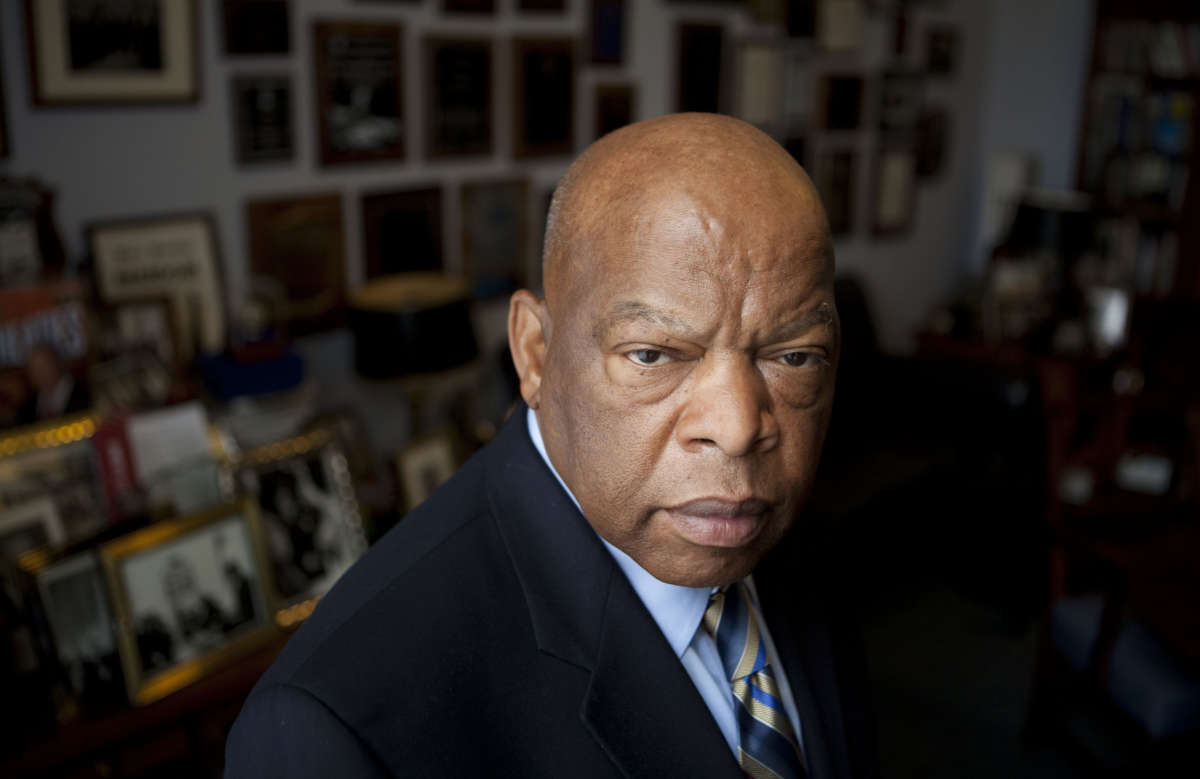During an interview with Axios’s Jonathan Swan that aired on HBO Monday evening, President Donald Trump was asked to give his opinion on Rep. John Lewis, who passed away last month at age 80.
“How do you think history will remember John Lewis?” Swan asked Trump.
The president appeared unwilling to give the late congressman and Civil Rights icon any praise. “I don’t know, I really don’t know. I don’t know John Lewis,” he said.
Trump also seemed to be upset with the fact that Lewis had skipped his inauguration and swearing-in ceremony as president. “He chose not to come to my inauguration,” Trump lamented.
Lewis announced in January 2017 that he wouldn’t attend the event because he didn’t believe the president-elect was the legitimate winner in the 2016 presidential election.
Swan pressed on, asking Trump if he found Lewis or his story at least impressive. Again, the president demurred on the question.
“I can’t say one way or the other. I find a lot of people impressive. I find many people not impressive,” Trump said. “But he didn’t come to my inauguration. He didn’t come to my State of the Union speeches. And that’s okay, that’s his right.”
Trump tried to change the topic of the conversation at that point. “Nobody has done more for Black Americans than I have,” he said.
A number of historians, however, object to that claim, noting that several presidents before Trump have done significantly more to help Black Americans. The Trump administration also presently stands in the way of restoring the Voting Rights Act, which would protect the voting rights of Black Americans, and which was an issue that Lewis himself devoted his life toward. On top of a veto threat of a bill that would restore key aspects of the law, Trump has appointed a number of judges to federal posts who have signaled an unwillingness to protect the rights of Black voters.
Trump has frequently expressed racist viewpoints as president, too, including in 2019 when he told four congresswomen of color whom he disagreed with to “go back” to their countries of origin, in spite of the fact that three of the four were born in the U.S., with the fourth member having lived here since she was a teenager.
Trump’s actions as a businessman have also been criticized for being racist and discriminatory toward Black Americans. In the 1970s, for example, he and his father Fred Trump were sued by the U.S. Department of Justice for discriminating against Blacks when it came to renting out housing in properties owned by the Trumps.
Swan tried one last time to get Trump’s opinion on Lewis, asking the president to “take [his] relationship with him out of it” and to say whether he found the late congressman’s story impressive or not. Trump’s response was to try and diminish Lewis’s role in the Civil Rights movement.
“He was a person that devoted a lot of energy and a lot of heart to Civil Rights,” Trump began, “but there were many others also.
Join us in defending the truth before it’s too late
The future of independent journalism is uncertain, and the consequences of losing it are too grave to ignore. To ensure Truthout remains safe, strong, and free, we need to raise $44,000 in the next 6 days. Every dollar raised goes directly toward the costs of producing news you can trust.
Please give what you can — because by supporting us with a tax-deductible donation, you’re not just preserving a source of news, you’re helping to safeguard what’s left of our democracy.
